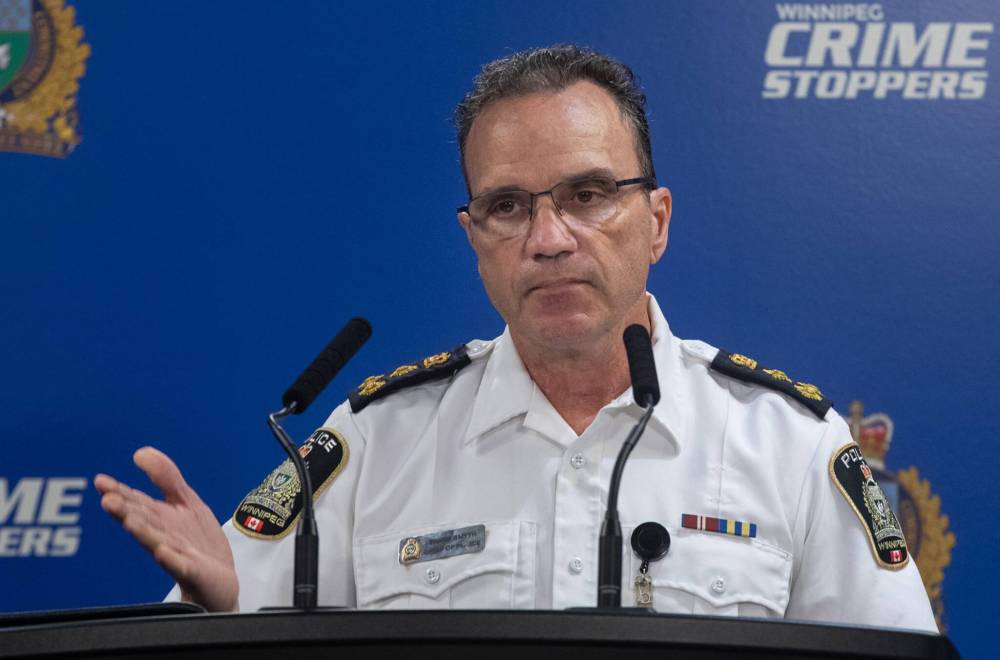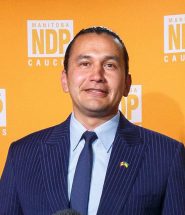A missed opportunity for reflection and change
Read this article for free:
or
Already have an account? Log in here »
To continue reading, please subscribe:
Monthly Digital Subscription
$0 for the first 4 weeks*
- Enjoy unlimited reading on winnipegfreepress.com
- Read the E-Edition, our digital replica newspaper
- Access News Break, our award-winning app
- Play interactive puzzles
*No charge for 4 weeks then price increases to the regular rate of $19.00 plus GST every four weeks. Offer available to new and qualified returning subscribers only. Cancel any time.
Monthly Digital Subscription
$4.75/week*
- Enjoy unlimited reading on winnipegfreepress.com
- Read the E-Edition, our digital replica newspaper
- Access News Break, our award-winning app
- Play interactive puzzles
*Billed as $19 plus GST every four weeks. Cancel any time.
To continue reading, please subscribe:
Add Free Press access to your Brandon Sun subscription for only an additional
$1 for the first 4 weeks*
*Your next subscription payment will increase by $1.00 and you will be charged $16.99 plus GST for four weeks. After four weeks, your payment will increase to $23.99 plus GST every four weeks.
Read unlimited articles for free today:
or
Already have an account? Log in here »
Hey there, time traveller!
This article was published 27/09/2022 (1174 days ago), so information in it may no longer be current.
Negative feedback can be a powerful motivator to do better. It can be an opportunity for reflection, for re-imagination — so long as that feedback is actually listened to, not simply heard.
Based on the response to a recent public opinion survey regarding the Winnipeg Police Service, conducted by Prairie Research Associates, which found a decline in public trust in the institution, it appears the WPS is doing more hearing than listening.
In response to the survey, which polled 600 Winnipeggers, WPS Chief Danny Smyth told reporters, “I do think the pandemic is part of it, and we’ll, like everyone else, work through this and try to address these concerns.” He did not outline how, specifically, the pandemic is part of it and how, specifically, these concerns will be addressed.
JESSICA LEE / WINNIPEG FREE PRESS In response to the survey, WPS Chief Danny Smyth told reporters, “I do think the pandemic is part of it, and we’ll, like everyone else, work through this and try to address these concerns.”
Forty-six per cent of survey respondents said police in Winnipeg are doing a good job, down from 64 per cent in 2019. While 37 per cent think the WPS is underfunded, about one in five think the WPS is overfunded — 19 per cent of respondents this year, up from nine per cent in 2019. People also believe crime is getting worse and that there are too few officers in the city.
Some of these survey results could be a reflection of people thinking more critically about the limits of traditional policing in general.
The arrival of COVID-19 was not the only significant thing to happen in 2020. The murder of George Floyd, an unarmed Black man, by a Minneapolis police officer sparked widespread protests against police brutality and racially motivated violence as part of the Black Lives Matter movement, which has been active in the United States since 2013.
Calls to defund or abolish police forces became more mainstream, no longer just a topic of discussion for activists and advocates, but for the general public more broadly.
Calls to defund or abolish police forces became more mainstream, no longer just a topic of discussion for activists and advocates, but for the general public more broadly.
It’s well documented that many groups of people have longstanding trust issues with police, including Indigenous people, people who have experienced sexual assault and other forms of gender-based violence, people who use drugs, people who are unhoused and people experiencing mental illness, to name just a few.
These are populations, activists, advocates and researchers have argued, that might be better served by the establishment of — and, crucially, the investment in — specific community services. Bear Clan Patrol is a strong example of an Indigenous-led, community-based policing alternative.
While putting more police offers on the streets might increase the perception of safety for certain members of the community, it’s important to note that perception doesn’t always square with reality. Rather than throwing more police officers and resources at problems, Winnipeg could look at bolstering wraparound supports, which are critically important for people whose very existences can lead to criminalization.
Rather than throwing more police officers and resources at problems, Winnipeg could look at bolstering wraparound supports, which are critically important for people whose very existences can lead to criminalization.
Safe, accessible housing — whether temporary or permanent — could alleviate the need for unhoused people to move into bus shelters or set up encampments on public property. Accessible public toilets would address public urination and defecation. Supervised injection sites, as well as more shelters that accept people who are intoxicated, would give more people a safe place to go.
Looking at different ways of doing — as well as perhaps identifying things to stop doing — in order to “build relationships and create a culture of safety for all,” as stated in the WPS’s own motto, is an undertaking the institution should take very seriously. Public opinion of the WPS has been trending down over the past few years, which suggests the pandemic might be playing less of a role than Mr. Smyth proposes.
These survey results should be a motivator for change, not an invitation to dismiss concerns and assign blame to the pandemic.









